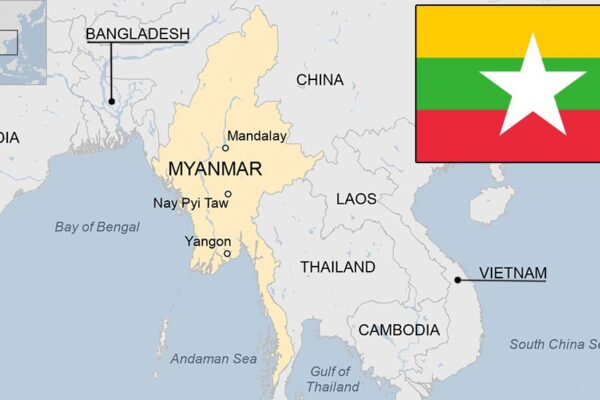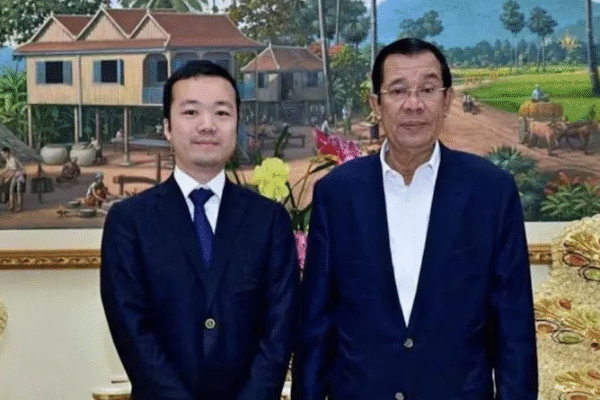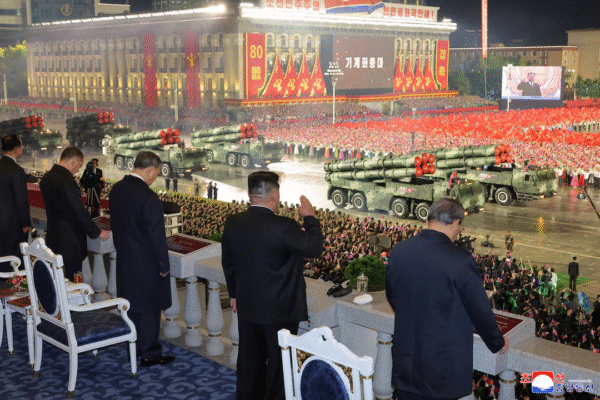Self-Immolation as Students Protest
A Tibetan monk set himself ablaze Wednesday at his monastery in China’s northwestern Qinghai province following protests by several thousand Tibetan students calling for education reforms, sources said. The self-immolation occurred at a monastery in Qinghai’s Rebkong (in Chinese, Tongren) county in Malho (in Chinese, Huangnan) Tibetan Autonomous Prefecture, triggering protests by hundreds against Chinese rule in Tibetan-populated areas, exile sources said. The burning came a day after nearly 4,000 middle school students held protests demanding Tibetan language and other rights in Rebkong and in neighboring Tsekhog (in Chinese, Zeku) county, sources inside Tibet said. The students had been prevented from leaving their schools, the sources said, with one source adding, “The authorities have detained all the students inside the schools.” Rebkong was the scene of constant student protests in October 2010 against a proposed change in the language of instruction in schools from Tibetan to Chinese. The self-immolation on Wednesday was the 28th by Tibetans since they began a wave of fiery protests in February 2009 to challenge Beijing’s rule and call for the return of Tibet’s exiled spiritual leader the Dalai Lama. Part of the student crowd protesting over language rights in Rebkong county. Chinese security A couple of hours later, hundreds of Tibetans converged at the monastery to protest, drawing Chinese security forces. “Around 11 a.m. or 12 p.m., local Tibetans gathered on the grounds in front of the monastery and raised slogans. They recited prayers for the Dalai Lama and remained firmly at the site,” another Tibetan exile source said. “The local police ordered them not to recite prayers and to disperse, but the crowd refused,” the source said. “The situation is tense.” The latest self-immolation occurred four days after Uprising Day, the politically sensitive March 10 anniversary of the 1959 flight into exile of the Dalai Lama and of regionwide protests throughout Tibet in 2008. The wave of self-immolations prompted a call last week from well-known Tibetan blogger Woeser and senior Tibetan religious leader Arjia Rinpoche to end the fiery protests, saying that Tibetans opposed to Chinese rule should instead “stay alive to struggle and push forward” their goals. Tibet’s India-based exile cabinet marked this year’s March 10 anniversary of the failed 1959 national uprising against Chinese rule with a statement noting what it called China’s efforts over the last half-century “to annihilate the Tibetan people and its culture.” Lobsang Sangay, the head of the exile government, said that while he strongly discourages self-immolations, the “fault lies squarely with the hardline leaders in Beijing.” The Chinese government has blamed the Dalai Lama for the self-immolations, accusing the 76-year-old Buddhist leader and his followers of plotting to create “turmoil” in China’s Tibetan-inhabited areas. But Sangay said “the self-immolations are an emphatic rejection of the empty promises of [China’s] so-called ‘socialist paradise’” and the lack of ability to protest in any other way in Tibet. “Today, there is no space for any conventional protests such as hunger strikes, demonstrations and even peaceful gatherings in Tibet,” Sangay said. “Tibetans are therefore taking extreme actions such as … [committing] self-immolations,” Sangay said. Reported by Lobe Socktsang and Soepa Gyatso for RFA’s Tibetan service. Translated by Karma Dorjee. Written in English by Parameswaran Ponnudurai. We are : Investigative Journalism Reportika Investigative Reports Daily Reports Interviews Surveys Reportika







